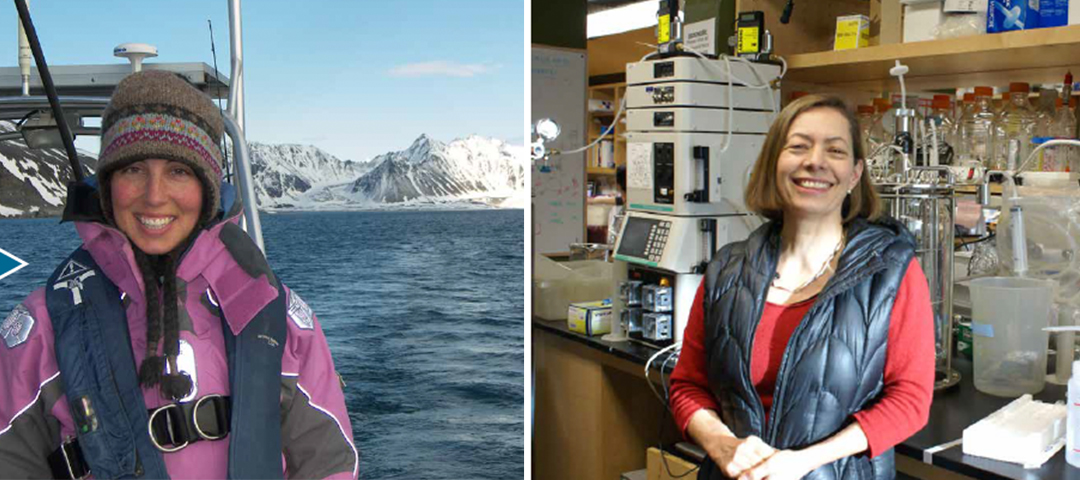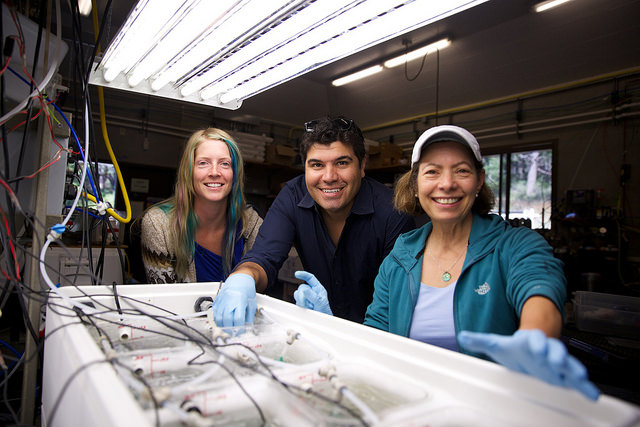ISB’s Women in Oceanography
 isbscience.org/news/2015/01/29/isbs-women-in-oceanography/
isbscience.org/news/2015/01/29/isbs-women-in-oceanography/
Photos above: (Left) Anne Thompson and (right) Mόnica Orellana as featured in “Women in Oceanography: A Decade Later.”
BY ISBUSA
Two of ISB’s senior research scientists are featured in the second edition of “Women in Oceanography.” Dr. Mόnica Orellana and Dr. Anne Thompson, both of the Baliga Lab, share their stories about what inspired their careers in oceanography and some of their thoughts about working in the field. The inaugural issue of “Women in Oceanography” was published a decade ago in 2005. (Dr. Orellana appeared in the 2005 magazine, too.) This edition offers updates on the careers of those women who participated then and also adds the stories of women who are still early-career.

Dr. Mόnica Orellana, front, and colleagues Dr. Jake Valenzuela and Allison Lee monitor experiments related to ocean acidification at the UW Friday Harbor Labs. (File photo, Aug. 2014)
“For the young scientist, I believe it is important not only to follow a dream but also to develop conceptual tools and experimental techniques. Be imaginative and open-minded; look at questions in different ways and learn cutting-edge techniques that can reveal new areas of thinking and research. It’s also important to give back to the community through educating the next generation.” – Dr. Mόnica Orellana, Senior Research Scientist, Baliga Lab, Institute for Systems Biology; Principal Scientist, Polar Science Center-Applied Physics Laboratory, University of Washington (page 189 in “Women in Oceanography: A Decade Later”)
Read more about Dr. Orellana’s research here. To view more photos of her field work, visit our Flickr album.
“A college microbiology course kindled my interest in environmental microorganisms and the adventurous scientists who pursued them into caves, space, and the ocean. Initially, I wanted to become an astrobiologist. I fantasized about searching for microbial life on Mars. After learning more, I saw the ocean as a more accessible extreme environment, full of understudied microbial life, and I looked into oceanographic graduate programs.” – Dr. Anne Thompson, Senior Research Scientist, Baliga Lab, Institute for Systems Biology (page 234 in “Women in Oceanography: A Decade Later”)
“Women in Oceanography” is a supplement to “Oceanography” the official magazine for the Oceanography Society. Read more: Women in Oceanography: A Decade Later







